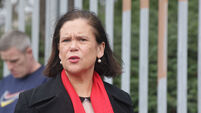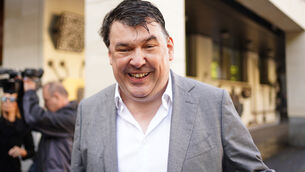Straight talking is refreshing but without change it loses its lustre

JUST like the weather the state of the Irish health system is responsible for far too much of our national conversation. But we seem to have forgotten that while meteorology is out of our control, we actually should and could have control of our health system.
I found myself involved in one of those health chats recently with someone who is exceptionally knowledgeable about the system. He set out an impressive roadmap of how we might take the opportunity of the next general election campaign to have a grown-up “realistic debate” about what sort of health service we want, and how much we are willing to pay for it.















